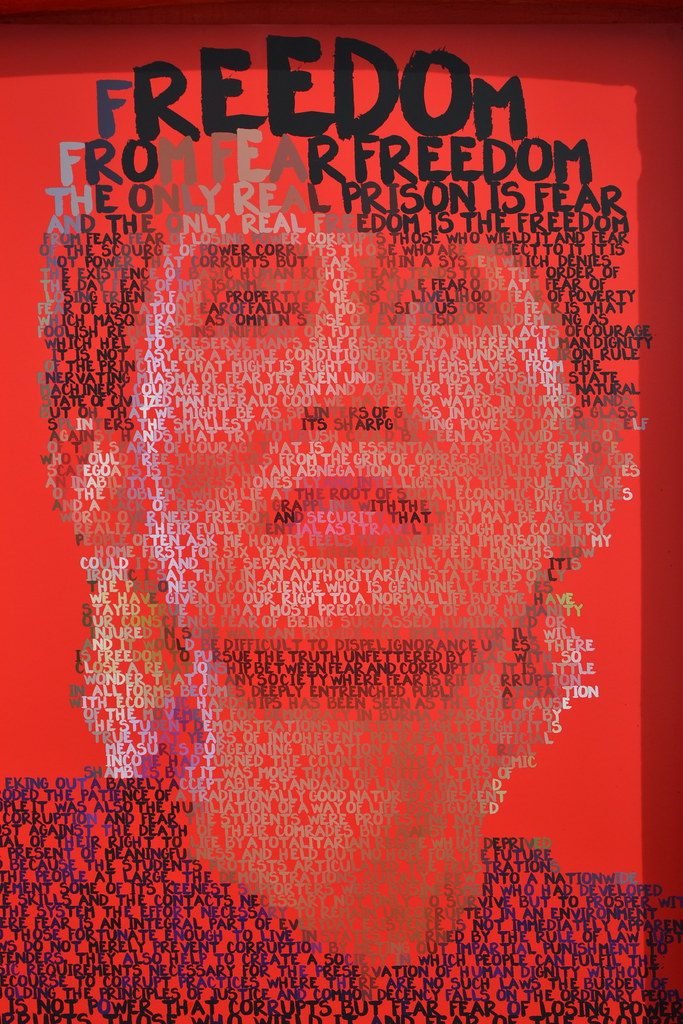Leadership is about being true to yourself while guiding yourself and others to a positive outcome or influence regardless of the consequences. Aung San Suu Kyi, daughter of General Aung San, who helped liberate Burma from the British in 1945, embodies that definition. She spoke against General U Ne Win’s military dictatorship and was under house arrest for 15 years. She was released in November of 2010 and is currently serving as the State Counselor of Myanmar.
Suu Kyi has accomplished many things while being under house arrest and after her release such as receiving the Nobel Peace Prize and becoming the State Counselor. However, her leadership is being questioned due to the Rohingya genocide in Myanmar, formerly known as Burma. Rohingya are the majority Muslim group in Rakhine State and are not recognized as one of the 135 ethnic groups under the Constitution. Therefore, they don’t have access to citizenship and their children are unable to obtain an education. Many of the Rohingya are escaping Myanmar because they are constantly attacked by the Burmese militants and the Buddhist people of Rakhine State. Although there are multiple pieces of evidence of the Burmese militants mistreating the Rohingya people, the Burmese government and militants denied the accusation that they are executing, raping women, or burning houses or villages of innocent Rohingya. On the other hand, Suu Kyi, who used to give “speeches on equality while under house arrest,” remained silent during this whole crisis (“From Peace Icon”).
As Zomi, one of the minority ethnic groups, who used to look up to Suu Kyi, I am extremely disappointed in her for her lack of comments and support for the Rohingya people. In 1991, she was even awarded the Nobel Peace Prize for speaking up for democracy and human rights while being under house arrest. However, this is contradicting to what she stands for because it’s certainly not human rights. When the UN tried to investigate the ethnic cleansing, the Burmese government denied Humanitarian group access to Rakhine State, as Suu Kyi noted that the government would not accept recommendations that would “divide the two communities further” (“They Tried” 20). This is infuriating because, during 1988, she spoke against Win’s military government for being the “source of people’s hardship” and having “no real intention of allowing free and open politic,” knowing that she would be in trouble (Silverstein 1012-13). Following this, she was under hour arrest because the “military feared her popularity with the people” (Silverstein 1013). Suu Kyi could have simply gone against the government as she did in 1988 and allowed the UN to do their investigation. Besides, the investigation would not “divide” the Rohingya people or the Buddist people because it is the Burmese government that is causing all the problems (“They Tried 20). It simply shows that both the government and Suu Kyi are keeping the truth from the Burmese people and the whole world. It is indisputable that the government is concealing the truth as they arrested two Reuters journalists, who tried to expose the government’s brutality. However, Suu Kyi states, “They were not jailed for being journalists but for breaking the colonial-era Official Secrets Act” (“Aung San”).
Going back to the definition of leadership, Suu Kyi failed to be true to herself, although she was an epitome of an authentic leader for being a great influence on the Burmese people for changes in the government and equality for all ethnic groups. Along with her speeches, non-violent protests, and constant house arrest, she had a positive outcome on Myanmar by changing the government from a military dictatorship to a unitary parliamentary republic. However, she neglected the Rohingya people, sided with the government, and failed to show her true self as she fought for human rights. In that way, she resembled some of Coco Chanel’s characteristic of leadership. Chanel challenged France’s societal expectations of women’s attire during the 1900s and she expressed her leadership by going against the normal clothing for French women. Due to Chanel’s positive influence, women are now able to express themselves with attires, wear pants, and wear whatever they want. However, Chanel failed to be true to herself because she wasn’t guiding herself to a positive outcome as she became a German spy during WWII. Suu Kyi also failed to implement herself for a positive outcome as she neglected issues concerning ethnic cleansing and failed to stick up for equality for everyone in her country. While both Suu Kyi and Chanel failed to be true to themselves, they have managed to contribute positively to the greater good of their societies.
Works Cited
Ellis-Petersen, Hannah. “Aung San Suu Kyi on Reuters Jailing: Show Me the Miscarriage of Justice.” The Guardian, Guardian News and Media, 13 Sept. 2018, www.theguardian.com/world/2018/sep/13/aung-san-suu-kyi-rohingya-crisis-reuters-journalist-rakhine-myanmar.
Ellis-Petersen, Hannah. “From Peace Icon to Pariah: Aung San Suu Kyi’s Fall from Grace.” The Guardian, Guardian News and Media, 23 Nov. 2018, www.theguardian.com/world/2018/nov/23/aung-san-suu-kyi-fall-from-grace-myanmar.
Silverstein, Josef. “Aung San Suu Kyi: Is She Burma’s Woman of Destiny?” Asian Survey, vol. 30, no. 10, 1990, pp. 1007–1019. JSTOR, www.jstor.org/stable/2644786.
“They Tried to Kill Us All: Atrocity Crimes Against Rohingya Muslims in Rakhine State, Myanmar.” Simon-Skjodt Center for the Prevention of Genocide, Fortify Rights, p.34.


